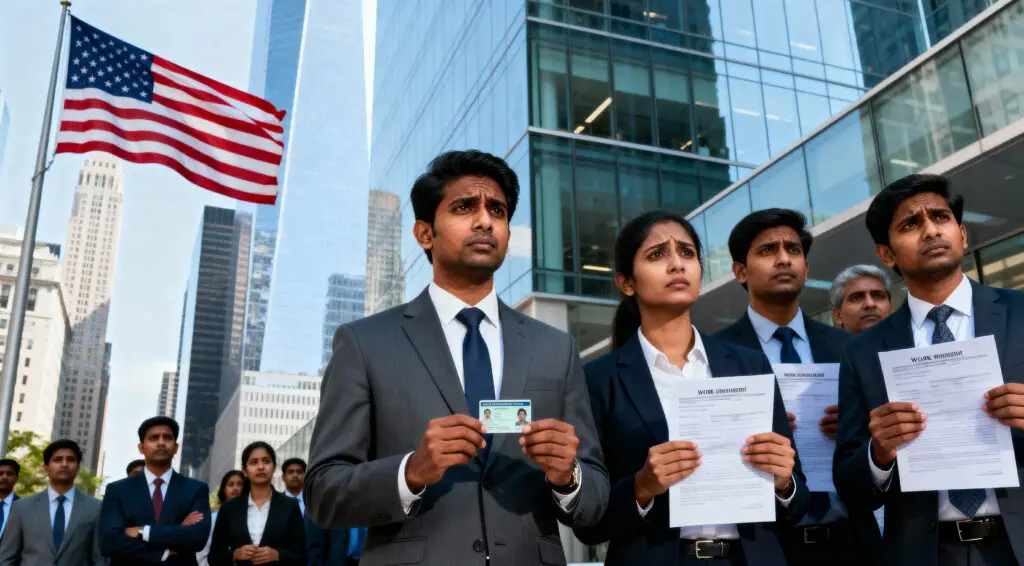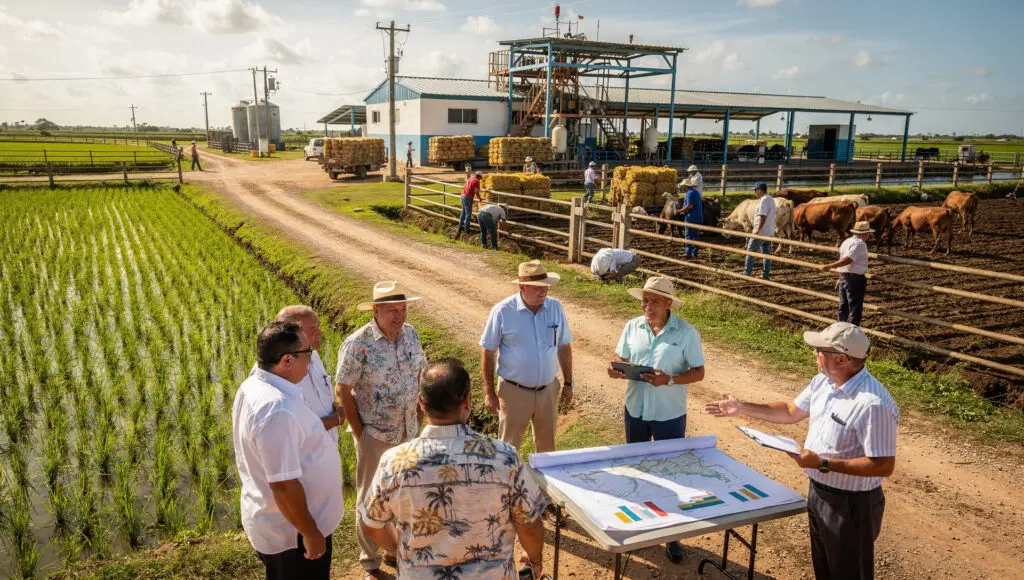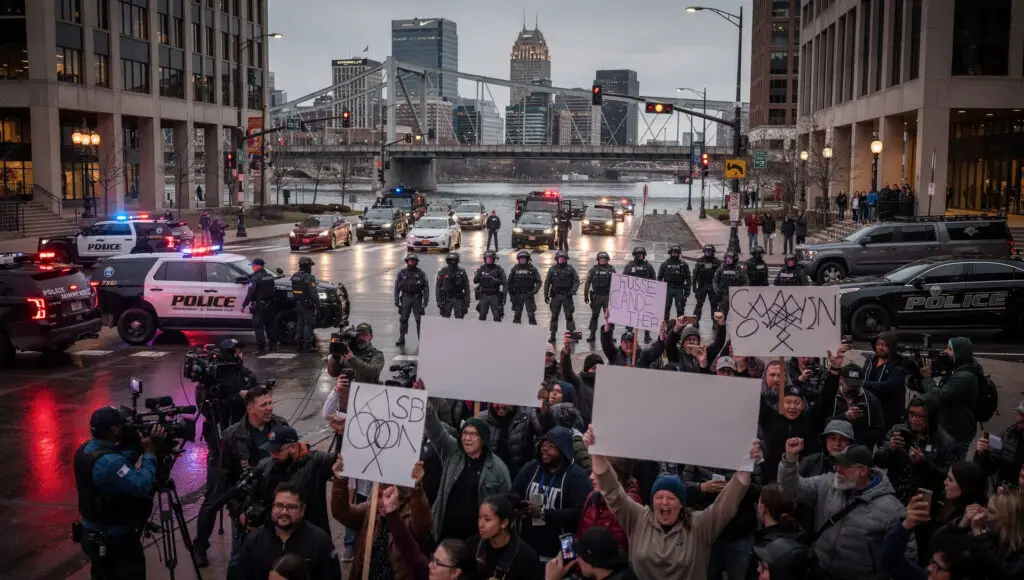DHS Ends Policy Allowing Extended Work Authorization
The Department of Homeland Security (DHS) of the United States has officially stopped automatically extending job authorization documents. This change in regulation will have an immediate effect on foreign professionals whose permit renewals are currently waiting for approval.
Before, candidates could keep working for up to 540 days while their renewal petitions were being reviewed. If no approval is given, the new regulation says that employment authorization will end the day after the current permit expires.

Indian Workforce Faces Significant Job Uncertainty
Indian professionals, who make up a big part of America’s skilled immigrant labor, are likely to be the most affected. A lot of them have H-1B visas, H-4 spousal work permits, or student visas with STEM extensions.
The change in the regulation may put thousands of people who are waiting in significant green card backlogs out of work. Many people might lose their legal right to work even if they have legitimate status if they don’t renew on time.
Legal Experts Warn of Immediate Consequences
Immigration lawyers have called the move a big change to how job authorization has been done for a long time. They say that if processing times don’t get better quickly under the new system, many people will lose their jobs.
Henry Lindpere, a senior lawyer at Manifest Law, said that the groups who are most affected are H-4 spouses and OPT students. He stressed that families and companies who depend on competent Indian workers will be impacted the most by the change.
Recommended Article: Global Climate Goals in Jeopardy as Nations Miss UN Deadline
USCIS Cites Security Concerns for Rapid Implementation
The department said it made the move because of national security concerns after an asylum seeker attacked in June 2025. Officials said that getting rid of automatic renewals will make identification checks stronger and defend the integrity of the American workforce.
Joseph Edlow, the head of USCIS, said that being able to work in the United States is a privilege, not a right. He went on to say that the agency is putting citizen safety first while making sure that immigration monitoring processes are followed.
Delays in Processing Make New Job Risks
USCIS data shows that the time it takes to complete a renewal request right now ranges from 3 to 12 months, depending on the kind of visa. Without the extended buffer, applicants could have to wait longer than usual for work permission because of ordinary administrative delays.
The agency tells those who want to renew their applications to do so at least 180 days before they run out of time to prevent problems at work. But long adjudication periods still leave applicants open to mistakes that are out of their control.
Broader Impact on US Businesses and Innovation
Employers who rely a lot on foreign technical workers may have problems right away when their contracts run out. The technology, healthcare, and research sectors, which have a lot of Indian workers, are expected to have big personnel deficits.
Experts say that ambiguity over work permits might make it harder for talented immigrants to come to the US. This might make it harder for the US to stay ahead in innovation, especially in STEM industries where there is a lot of demand for workers and they need to stay on the job.
Growing Pressure to Reform Immigration Processing
Because of quotas for each country, Indian citizens already have to wait in some of the longest green card lines in the world. The new rule makes things even more stressful by requiring people to renew their licenses over and over again without knowing when the decisions will be made.
Advocacy organizations are asking DHS to change its mind and bring back extension provisions until the backlogs are cleared up. Experts say that if things don’t change, more competent professionals will turn to Canada and Europe for solid jobs.























